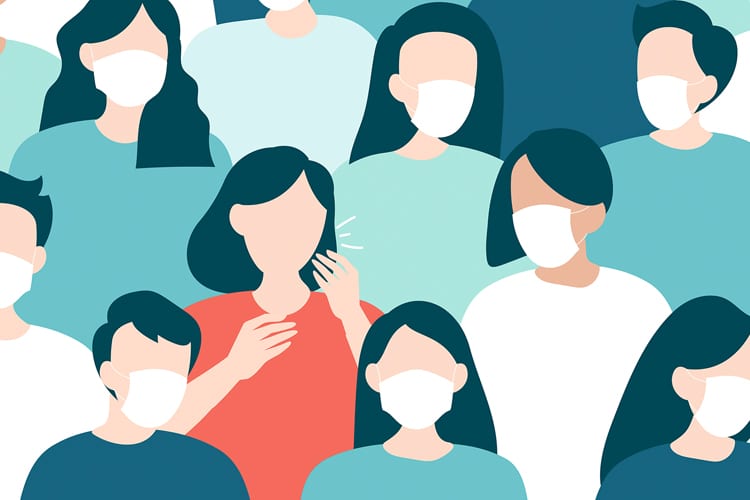Beware: Scammers Are Posing as Coronavirus Tracers

One of the most effective ways to fight back against coronavirus is contact tracing. The concept is pretty simple, but it’s a critical step to re-open safely. When someone tests positive for COVID, anyone who may have come into contact with them is notified and advised to self-isolate. Contact tracing in South Korea was one of the major reasons that the country was able to get rid of coronavirus so quickly.
As contact tracing expands in the U.S., however, the FTC says more scams are popping up too. Here’s what you need to know about contact tracing scams, how to spot them, and what to do about them.
What are Contact Tracing Scams?
To expand the country’s tracing ability, state health departments have hired a mass of everyday Americans to help. Contact tracers reach out to people with COVID-19 and request the name and contact info of anyone that might be at risk of getting the virus. Usually, those people will be contacted by text, and then by a call from the tracer informing them of the situation.
Scammers operate by posing as tracers and either sending phony texts with malicious links or asking for sensitive information like social security numbers. Real contact tracers will only text you to notify you that they’ll be calling, and no contact tracing text will have links. Legit tracers will also never ask for personal information, outside of the contact info of those around you. If you’re pressed for any extra information, there’s a scammer on the other end.
What To Do If You Spot a Scam
If you think you’ve spotted a contact tracing scam, report it to the Federal Trade Commission’s Complaint Assistant or the FBI’s Internet Crime Complaint Center. If you fall victim to a scam, file complaints with the same two organizations.
Both sites will ask you to fill out some personal information and details about the scam. The FBI handles more general internet crimes, but it can’t hurt to file a claim both ways. If you gave away any financial information, like credit card numbers, you should contact your bank and freeze those accounts.
And most importantly, don’t be embarrassed! Millions of people fall victim to scams every year, even Shark Tank star Barbara Cocoran. Cocoran had nearly $400,000 robbed from her, but she proved it was a fraud and froze the transaction before she lost the money. It can happen to anyone, and the best you can do is file a claim, check-in with your bank, and be more cautious in the future.
See Also: How to Protect Your Coronavirus Relief Check From Scammers









